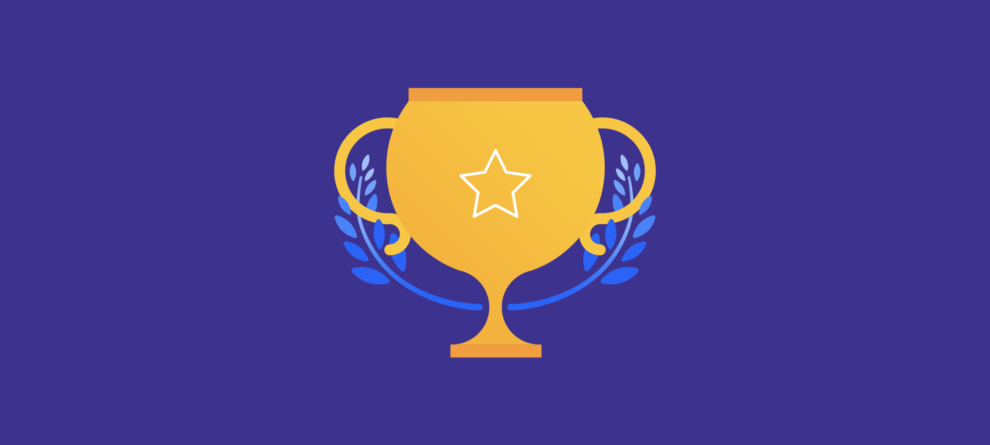Every year, Codegeist is the Atlassian developer community's chance to experiment, get creative, and try something new developing apps for Atlassian products. Celebrating the ecosystem's innovation (with prizes and swag!) is one of our favorite parts of Codegeist.
But building a successful hackathon app takes more than just an out-of-the-box approach — it also requires the same product mindset needed to build successful commercial apps for real users. Both projects require a keen understanding of user needs, an eye towards development best practices, and a way to quickly iterate and incorporate feedback.
With that long-term success in mind for our entire developer community, we have collected some tips from developers, partners, and our judges. We wanted you to have a few more insights to create a stand-out submission that also stands a great chance of becoming a successful app on the Atlassian Marketplace.
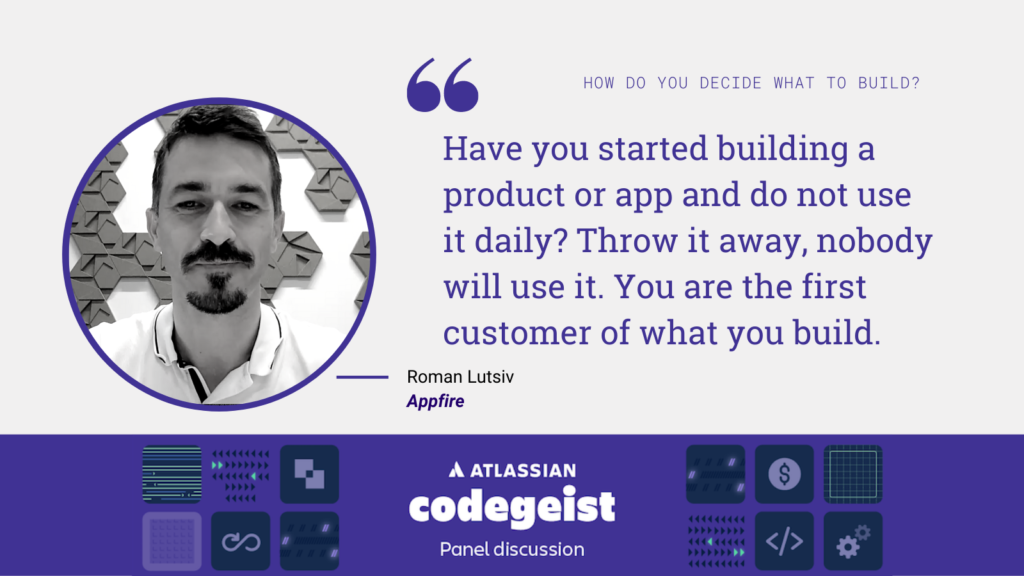
“Have you started building a product or app and do not use it daily? – Throw it away, nobody will use it. You are the first customer of what you build.” Roman Lutsiv, Head of Engineering for Agile and ITSM at Appfire.
Sound advice can come from many places. That's why in addition to this list, we have a live panel discussion with app developers who became successful Atlassian Marketplace partners.
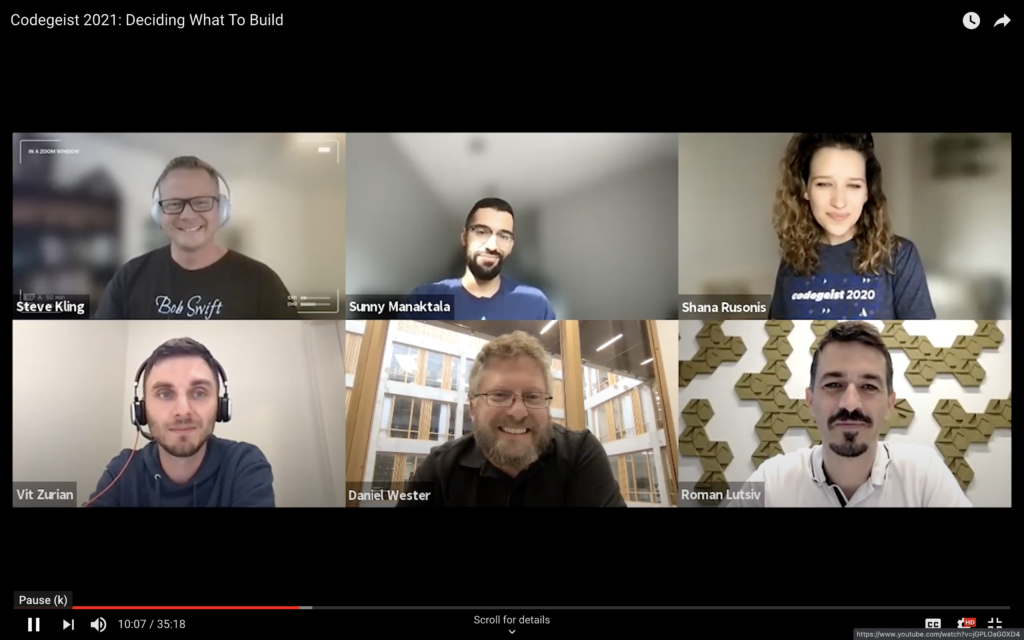
The panelists plan to share their lessons learned as participants in years of hackathons and developers of successful apps in the Atlassian ecosystem. Joining us, we have:
- Daniel Wester, Co-founder and CTO, 55 Degrees AB
- Roman Lutsiv, Head of Product Engineering for Agile and ITSM, Appfire
- Vitalii Zurian, Advisor, Appfire
- Steven Kling, Head of Cloud Engineering, Appfire
If you're just learning about Codegeist, there is still time to make your move. Register today.
7 tips for creating award-winning apps
1. Think about the audience
A new Harvard Business Review piece written by cofounder of VitalSmarts and New York Times best-selling author Joseph Grenney offers valuable inspiration for your app design. "Real connection happens when you see past the details of a task to its human consequences." As a developer, this can help connect what you build to the outcome you're trying to achieve. In other words, no matter what you're building, it's important to know specifics about and for whom you are building.
Your Codegeist entry is the perfect place to practice identifying the audience and the pain points you are hoping to solve with your app. We suggest starting with an outline, and making sure you document how you chose the problem and who has this problem. Show your understanding of your user's needs and how you may potentially solve them.
Hint: You'll use the audience feedback in your Codegeist submission, so it's a good idea to have it ironed out early!
Bonus tip:
Our research shows previous Codegeist entrants that engaged in a more user-centric way of generating ideas had more success (made more money!) than those who didn't consider the user need.
~ Caitlin McCurrie, Ph.D., Lead Researcher, Atlassian
2. Allow yourself time to dream
Having an ambitious vision is a good thing. Defining a large scale product solution as your ultimate goal can inspire your focus and it helps make sure you are working backwards to get to the goal. If you don’t yet have that inspiration, Vit Zurian of Appfire and LizardBrain suggests browsing the issues tracker for the product where you want to build your app. In the case of Atlassian products, you can view all the info when users report bugs and suggest new features.
A hackathon can be your chance to try approaches you might not attempt in your day-to-day work. Have fun experimenting and learning! Just remember to time box those big ideas, to meet the Sept 13 deadline.
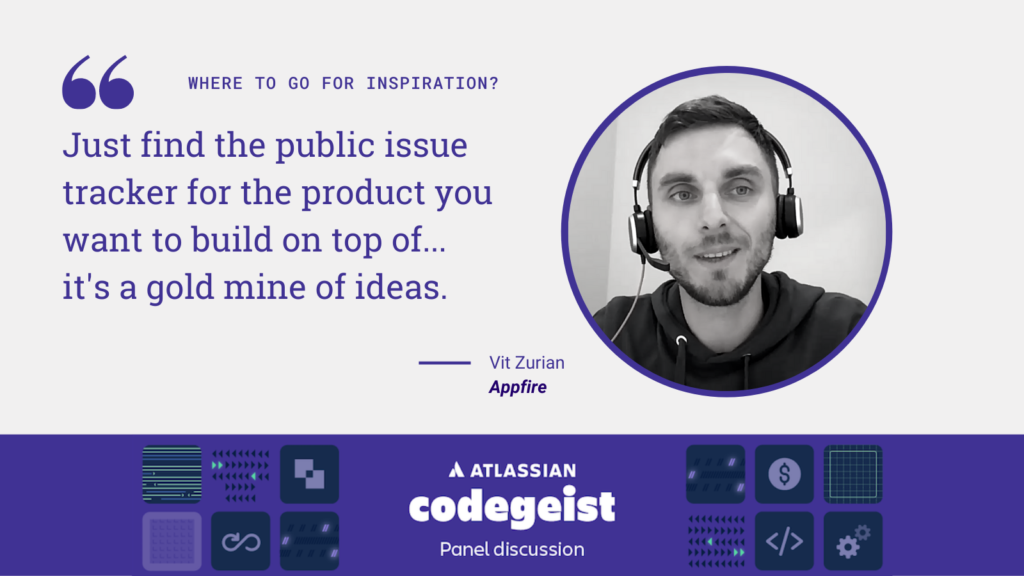
Bonus tip:
Use prototyping and wire framing tools, like Figma and Proto.io, so you can visualize your product before you start coding. ➡ Search the community for ideas
3. Adopt an agile mindset
This is a great time to start with an MVP and iterate.
To make those dreams a reality, you have to also stay on track. This might mean your hackathon entry is just an MVP of your bigger vision. Despite having a vision and a plan, it’s also ok to not have all the answers. Marketplace Partner 55 Degrees teaches it's ok to live with a little uncertainty. Co-founder Julia Wester says, “In real life, we have no hope of overcoming all uncertainty — zero. Instead, we must begin to accept it and learn how to operate, even thrive, within it.”
For more lessons learned about how to start small and grow from MVP, watch the panel discussion with leaders from Marketplace Partners Appfire and 55 Degrees.
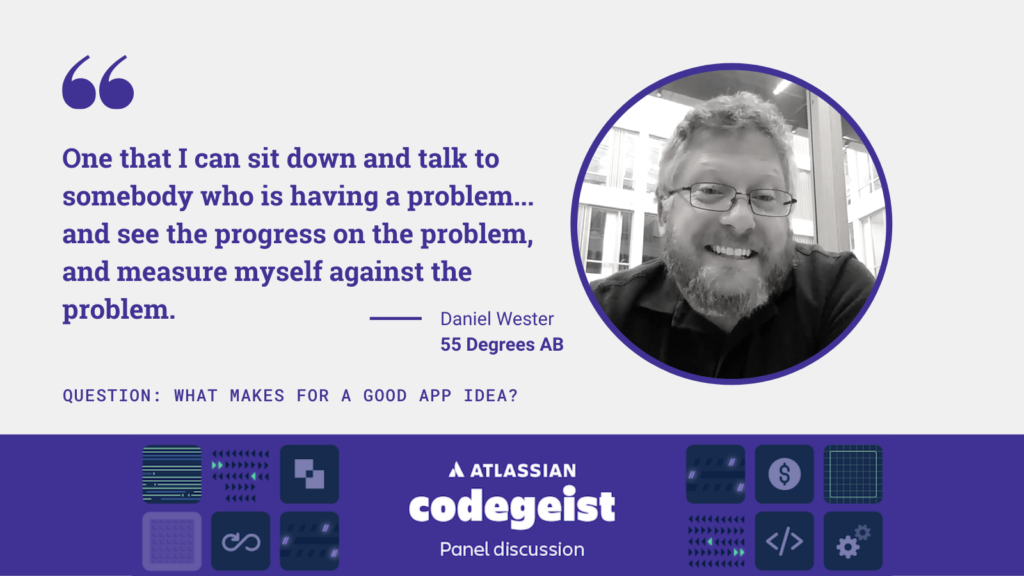
Bonus tip:
Use Your Whiteboard and Sticky Notes!
Design, design, design until it all comes together! A great app can be built amazingly fast if the vision is clear. ~ Steven Kling, Head of Cloud Engineering, Appfire
4. Creativity (and clarity) counts
Once you define the problem, make sure to do a little basic research to see what else is already out there that solves this problem – in general, creativity and originality is a judging criterion. If a solution exists, see how you can improve on the concept. You can review last year’s Codegeist winning entries for starters.
While it's not a requirement, clean, organized video submissions and written explanations really do make a difference. So does well-formatted documentation and packaging of code.
Bonus Tip:
It's just like when your school work received a higher grade when it was presented in a well-organized, easy-to-read format. Our judges will be wearing the hat of Atlassian customers, considering customer needs, and looking for the strengths we tend to see in successful Marketplace listings. ~ Shana Rusonis, Ecosystem Marketing Leader and Codegeist judge, Atlassian
5. Get feedback early, and often
Our most successful app developers in our Marketplace recommend getting feedback early and often. This doesn't need to be expensive or time intensive; just ask a friend, your Linkedin network, colleagues, even reach out for feedback on community.atlassian.com.
As you work through development plans, make time for peer review or to gather feedback early on. Capturing a persons's initial reaction to your app can be a powerful part of the submission and a reminder of what you are trying to achieve.
Bonus tip
Take your time and make sure it works as you think. Then improve based on customer feedback…I often try to make functionality for customers, without completely understanding their context. My experience has shown that if you have a basic, correct and workable product, customers will reach out to you with feature requests. Then talk to these customers and improve your product. ~ Developer community member
6. Demo, camera, record! Don't forget to explain your "why"
Your demo is your opportunity to highlight both your skills and your product's capabilities. Be sure to include why someone would want to use it, and what makes it unique.
Need help highlighting your unique selling proposition? Pick up some tips from some marketing experts at Marketo, along with no-nonsense product marketing guidance from Technology Advice.
Write out a script before you start recording. Make notes of the key items you want to highlight. This may not mean following a full workflow from start to finish. Hit the high points first, like you would in an executive summary when you only have 3 minutes. Oh wait, you DO only have 3 minutes. So practice, practice, practice!
Bonus tip:
Aim to finish your app at least one day before the deadline and spend the final day creating the video and completing the submission page. The code is important, but so is how you relay it to the judges! Get a friend to proofread. Make use of images, Markdown, and the optional prompts on your submission form.
7. Create accountability, and squad goals!
If you really want to make sure you follow through and don't lose your momentum, set some calendar reminders. Ask a friend to check in on your work. For an extra incentive to do your best work, commit to showing your app to someone whose opinion you value.
Working on your entry as a team? Maybe you don't have to do formal sprint reviews, but make sure to find a way to connect regularly. Check out more teamwork tips for online hackathons from Devpost.

Bonus tip:
Working from multiple locations? The Secret to Remote Teams from our Agile Coach site offers strategies to help bridge the distance gap and maximize the golden hours.
Join us in unleashing team potential
Codegeist celebrates the unique creativity of the Atlassian developer community. This is the perfect opportunity whether you are looking to lead the way in building award-winning apps or seeking knowledge and experiences from peers around the world. Be known among the best.
